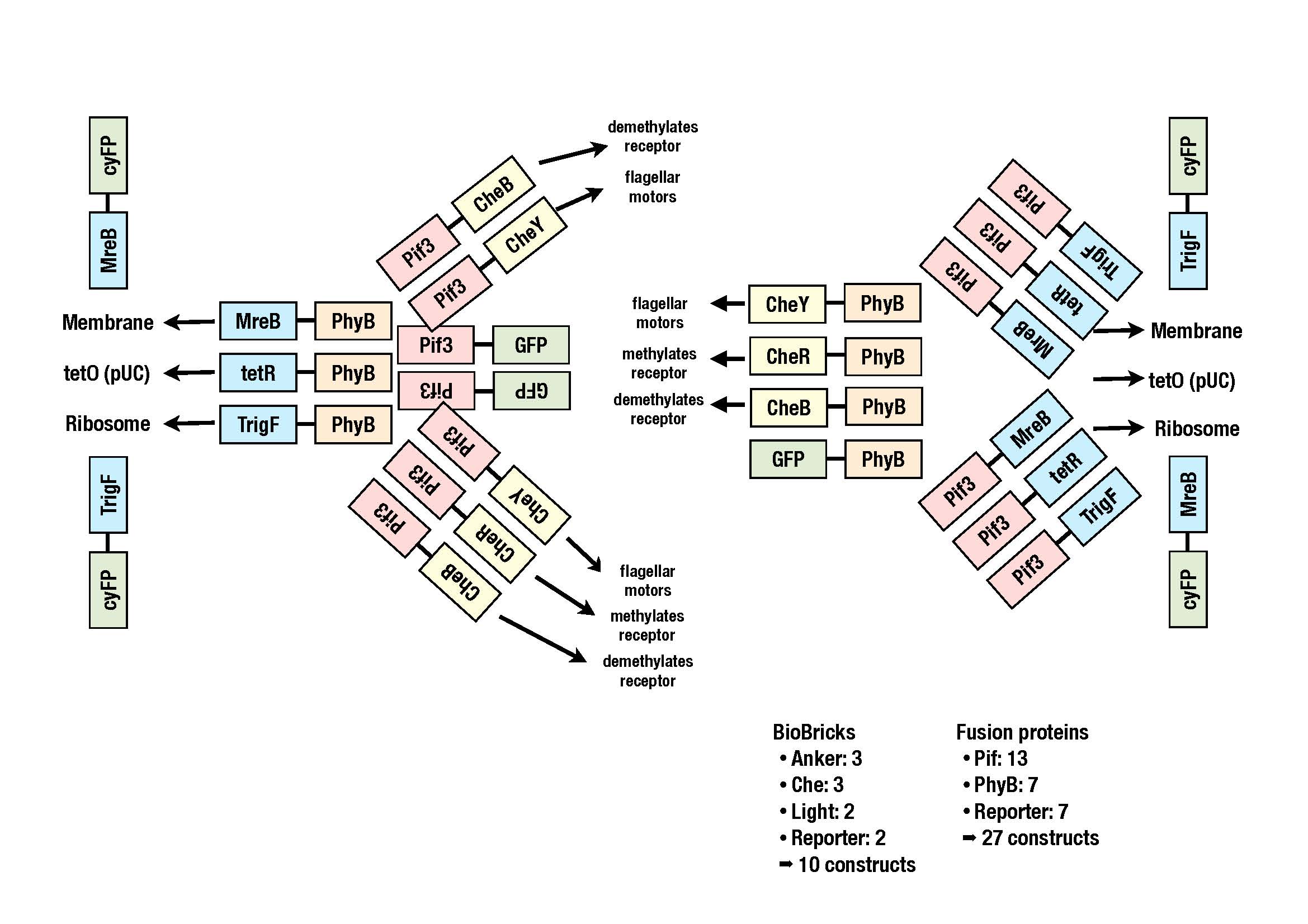Team:ETHZ Basel/Biology/Implementation
From 2010.igem.org
(Difference between revisions)
(→Parts) |
(→Parts) |
||
| Line 2: | Line 2: | ||
{{ETHZ_Basel10_Biology}} | {{ETHZ_Basel10_Biology}} | ||
| - | = | + | === Experimental results === |
| - | + | ||
| - | | | + | == generation of fusion proteins == |
| - | | | + | The image shows all the constructs we plan to clone.[[Image:Constructs.jpg|200px|thumb|none|fusion proteins]] |
| - | | | + | Once the BioBricks in the storage vectors are available, the fusion proteins in the working vector 1 or 2 will be generated according to the cloning strategy BBF RFC 28. |
| + | |||
| + | |||
| + | == Modeller's input == | ||
| + | Due to the high amount of fusion proteins that were in planing, priorities had to be distributed to the different genes. This was possible due to the various models the dry-lab team implemented. | ||
Revision as of 12:25, 13 October 2010
Experimental results
generation of fusion proteins
The image shows all the constructs we plan to clone.Once the BioBricks in the storage vectors are available, the fusion proteins in the working vector 1 or 2 will be generated according to the cloning strategy BBF RFC 28.
Modeller's input
Due to the high amount of fusion proteins that were in planing, priorities had to be distributed to the different genes. This was possible due to the various models the dry-lab team implemented.
 "
"



